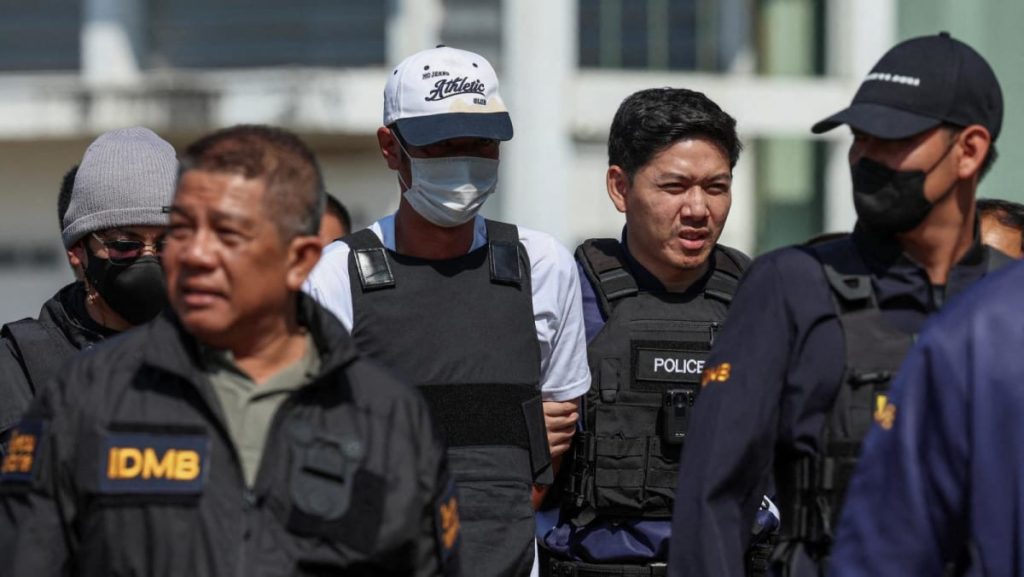The assassination of Lim Kimya, a former Cambodian opposition lawmaker, in Bangkok has sparked international intrigue and ignited accusations of political machinations. The confessed killer, Ekkalak Paenoi, a Thai national and former marine, claims his motive was repaying a personal debt of gratitude, rather than a politically motivated act. This explanation, however, has been met with skepticism, particularly by Cambodian opposition figures who point fingers at Cambodia’s long-time ruler, Hun Sen, and his enduring influence within the kingdom, despite officially handing power to his son, Hun Manet, in 2023. While the Cambodian government denies any involvement, the assassination has fueled existing tensions and suspicions surrounding the suppression of political dissent in Cambodia.
Ekkalak’s confession, delivered via a livestream video, admits to premeditated murder and unauthorized gun ownership. He asserts that he carried out the killing to repay an unnamed individual who had provided assistance during a difficult period following his dismissal from the navy. This claim contrasts with some Thai media reports suggesting a payment of 60,000 baht (US$1,700) for the assassination. However, senior police official Attaporn Wongsiripreeda has stated that Ekkalak denied receiving any monetary compensation. The conflicting information surrounding the motive and potential payment raises questions about the full story behind the assassination and whether other individuals or entities were involved. The ongoing investigation, which includes a warrant for a Cambodian accomplice, aims to unravel these complexities and shed light on the true nature of the crime.
The assassination occurred on Tuesday as Lim Kimya arrived in Bangkok by bus from Cambodia with his French wife. A motorcyclist, later identified as Ekkalak, gunned down Lim Kimya, highlighting the brazen nature of the attack. Ekkalak was swiftly apprehended in Cambodia on Wednesday and extradited back to Thailand on Saturday, suggesting a degree of cooperation between the two countries in the investigation. However, the underlying political tensions between the nations, exacerbated by the presence of Cambodian opposition activists seeking refuge in Thailand, complicate the narrative.
The incident underscores the precarious situation faced by Cambodian opposition figures who have fled to Thailand in recent years, seeking asylum from alleged political persecution in their homeland. Many fear reprisals for their activism against Hun Sen’s regime, which has been accused of using the legal system to silence dissent and maintain its grip on power. The assassination of Lim Kimya serves as a chilling reminder of the risks these individuals face, even beyond Cambodia’s borders. The history of arrests and deportations of Cambodian activists from Thailand adds another layer of concern, raising questions about the level of protection afforded to them and the potential influence of the Cambodian government within Thailand.
Hun Sen’s long reign over Cambodia, spanning nearly four decades, has been marked by accusations of authoritarianism and human rights abuses. His recent call for legislation to label those attempting to overthrow Hun Manet’s government as “terrorists” further reinforces concerns about the suppression of political opposition. While Hun Sen has officially stepped down, his continued influence in Cambodian politics remains evident. The assassination of Lim Kimya, occurring shortly after this proposed legislation, raises concerns about a potential escalation in tactics to silence dissent and maintain control.
The swift apprehension and extradition of Ekkalak, coupled with his confession, provide a seemingly straightforward narrative of the crime. Yet, the conflicting details regarding the motive, the presence of a Cambodian accomplice, and the broader political context surrounding the assassination suggest a more complex story. The ongoing investigation must delve deeper into these complexities to determine the full extent of the plot and whether it involved individuals beyond the confessed killer. The international community will be watching closely, seeking answers and demanding accountability for the murder of Lim Kimya and an end to the persecution of political opposition in Cambodia. The case serves as a stark reminder of the fragile state of democracy and human rights in the region and the ongoing struggle for freedom and justice.

